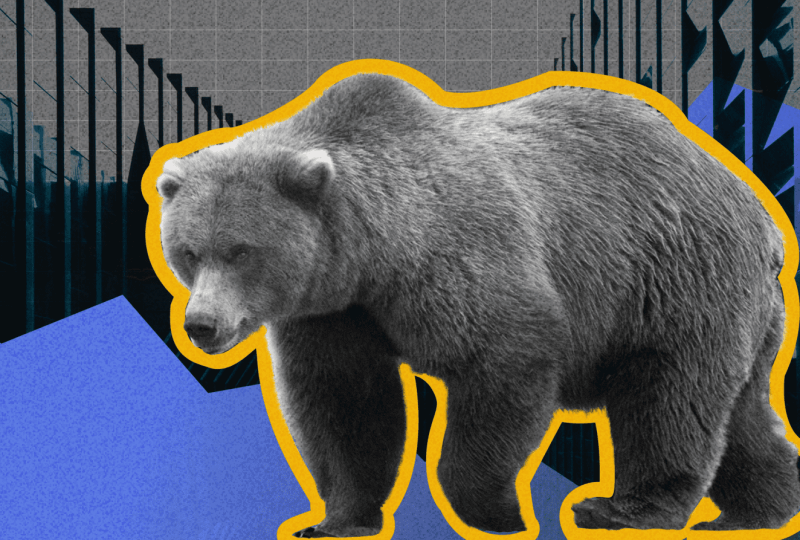China’s Second Quarter Was Grim. Here’s What It Means for Its Stock Recovery
Jul 13, 2022

China is anticipated to experience its slowest economic growth since the height of the epidemic in 2020. Investors should consider the state of the consumer and credit expansion to determine whether the early stock market rebound can last.
Most experts anticipate a decline in actual economic activity as a result of the severe lockdowns that halted business in Shanghai and Beijing in the second quarter and the ongoing problems in the real estate market. According to the consensus forecast, the GDP shrank by 2% in the second quarter.
The Chinese stock market has not been affected by a slowing economy. Since early May, the iShares MSCI China exchange-traded fund MCHI (MCHI) has increased 15% as lockdowns have loosened, and Chinese policymakers have pledged to stabilize the economy ahead of the 20th Party Congress and end the crackdowns on the private sector that have alarmed investors for the past two years.
But some are concerned that the Chinese surge may be unstable. Not only that, a contraction is unlikely to be reported by official data. According to Shehzad Qazi of China Beige Book, the Communist Party's goal of avoiding massive stimulus expenditure got it into difficulty following the global financial crisis. According to Qazi, policymakers are likely to implement less stimulative measures the higher the official GDP statistic.
Instead, GDP might not be the best indicator to follow. Investors need to see evidence of a recovery in China's credit growth as well as evidence of consumers' increased willingness to spend. The data that economists believe to be more informative than GDP is connected to consumer spending and credit expansion.
According to Arthur Kroeber, head of research at Gavekal, via email, "the most important indication is credit growth; it's hard to envision a very big sustained rise either in stocks or in the property market unless you see more of a boost there."
Property sales and construction, which will be announced in the following several weeks, are the next items to be watched. Despite a solid June for real estate sales, the data so far this month has been disappointing since credit growth has to rise up significantly, and further Covid lockdowns are still a possibility. Analysts believe that there has to be a significant increase in long-term borrowing by households and corporations in order for the economic recovery to be more robust and for the stock surge to be more secure.
According to Derek Scissors, a senior fellow at the American Enterprise Institute, investors should also keep an eye on consumers' demand for durable items like automobiles, one of the indicators in this week's retail sales report that merits watching. The statistics for this month can help determine if the increase in car sales last month was simply the result of pent-up demand following the lockdowns or whether it signals a more long-term increase in demand.
The other issue for China is that while its exports have boosted its economy, as recession worries spread across Europe and the United States, it may lose that momentum. Furthermore, as Kroeber notes, over the past seven to eight months, there has been a shift in multinational companies' attitudes that is threatening to cloud the longer-term outlook for exports.
Even though they believe China has little chance of meeting its 5.5 percent annual economic growth objective, the majority of forecasters believe the economy will look stronger in the second half. Rory Green of TS Lombard anticipates a sizable infrastructure boost but predicts that rather than reaccelerate GDP, it will likely only stabilize. Green believes that the worst is over, but he predicts that China's recovery will be gradual and that any stimulus or loosening of the crackdown on technology will be countered by the possibility of additional Covid lockdowns and the country's slumping real estate market.
Investors are uninterested. This week, BlackRock's Investment Institute stated that despite activity picking up again, it was neutral on Chinese equities. Economic growth in 2022 appears to be below government projections, and geopolitical worries, especially China's links to Russia, are among its worries.
The recent advance in internet stocks was also halted by the penalties imposed this week against Tencent Holdings (700. HongKong) and Alibaba Group (BABA), despite policymakers' previous statements that their crackdown against the technology industry was coming to an end. Laura Geritz, value manager at Rondure Global Advisors, says, "We got a new reminder that the government, not business leadership, may decide the economic fate of any firm." Given that these stocks make up a sizable portion of the index, the climb is over—at least temporarily.
Even while Geritz claims to be finding more high-quality equities in China at prices that provide a margin of safety, she warns that the near future may be problematic due to a challenging earnings season for businesses focused on domestic demand.
In order to determine if it is safe to enter, one may wish to look beyond GDP for indications that consumers are willing to spend and borrow more money. The market will begin to turn once they do.




